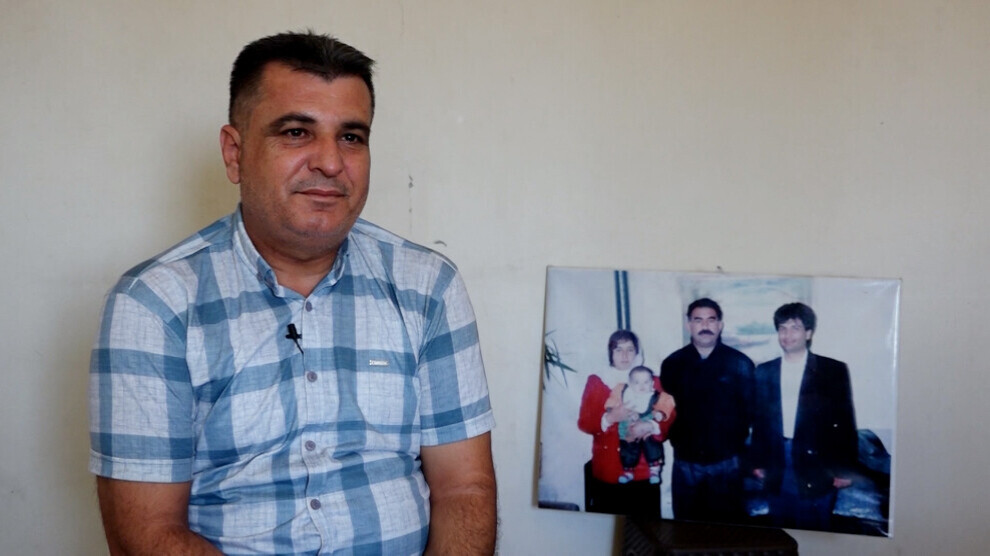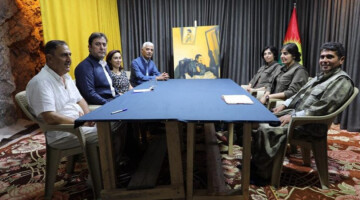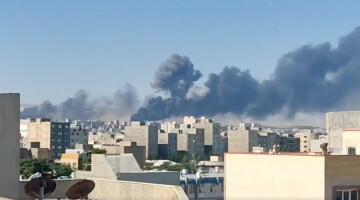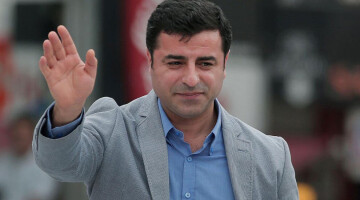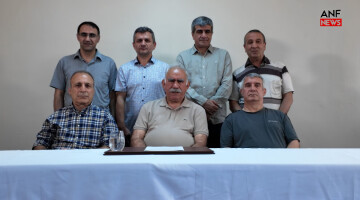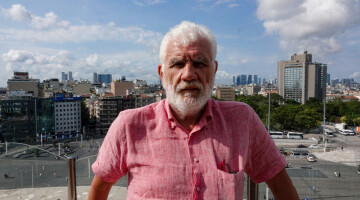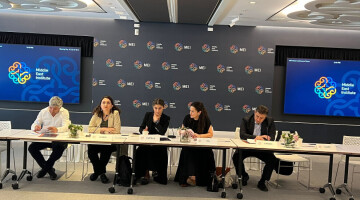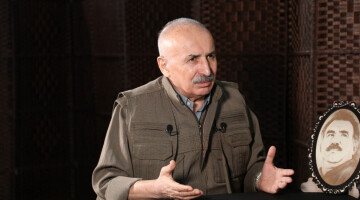On 2 July 1979, Abdullah Öcalan went to Kobanê. He had left Turkey ahead of the 1980 military coup, convinced that resistance would have to be organized abroad.
Abdullah Öcalan went to Kobanê together with Mehmet Sait (Ethem Akcan) and stayed there for almost two months. His stay had a great influence on the families he lived with. Omer Elûş, born in 1971, was a member of one of these families. He said: "The groups that were sent to Rojava were received by my cousin Enver Elûş. Among the first to arrive was my great-cousin Mehmet Sait, or Ethem Akcan. Enver had studied at the medical faculty in Istanbul. In 1975 he went to Istanbul. In 1976, his father died and he had to return. Ethem Akcan constantly drove from Kobanê to Pirsûs (Suruç) and back. He brought the first group from Northern Kurdistan to us in 1978 and then the group with Rêber Apo [Abdullah Öcalan] in 1979. After the first group, he said, 'Cousin, I will bring another valuable person.'"
Elûş added: "Since Enver had studied in Istanbul, he was familiar with the conditions in Turkey and could foresee what would happen: 'You brought one group, bring the second one too,' he said. All the family members knew that the groups would come to our house. Ethem brought Rêber Apo. We had no information about who he was, what he was and why he had come. We did not even know that it was the president. His name was given as Ali Fırat. Only Ethem's promise that he would bring a particularly valuable person remained in our subconscious."
Elûş continued: "Enver constantly warned the family, saying, 'No one must know about Ali Fırat.' When family members gathered in our house, Enver was very attentive and warned them not to disturb the president with the noise. After a while, when my great uncle's health problems increased, the president had to leave the house because my great uncle could die and, in that case, the number of visitors to our house would increase. This could have become a problem for the president's safety. For this reason, they took him to the house of Hemîde, Enver's sister. Hemîde's husband, Omar, was a village chief. Ethem and Enver were responsible for the organizational work. So the chairman stayed in Kobanê for about 38 to 40 days. He then moved to the house of Enver's sister in Şêxmeqsûd in Aleppo."
Omer Elûş described how he met Abdullah Öcalan: "I was still young at the time. Nobody knew that he was the president; they called him Ali Fırat. Secrecy was important. Even at that young age, I realized that he was a special person. In the family, we were told: 'He is a very special person.' That was all. I always asked my grandfather: 'Who are these people?' And my grandfather answered: 'They have come to take revenge for the oppressed, for the unborn children who were murdered in the womb.' Their behavior and actions were clear. It was only later in Damascus that I realized that it was the president.
The president trusted and valued our family. When he came to Aleppo, he gathered the family together and talked to them. Of course, I did not understand what he was saying, but I wanted to be close to him. That's why I sat in the front row and watched him. When he came in, he greeted us. When he left, he hugged us. You could clearly feel how people changed when they understood his perspectives. He thought a lot about the future and was a master of discipline. He was forward-looking, carefully calculated what might come his way and acted accordingly. He would never act without a plan. It was clear what he would do and when. His arrival in Kobanê initiated a social change. The apoist paradigm is being discussed worldwide today."
Elûş criticized the European Committee for the Prevention of Torture (CPT) for its tolerance of the isolation of Abdullah Öcalan and his three fellow prisoners on the Turkish prison island of Imrali, and said: "The CPT is not acting in accordance with its duties and responsibilities, but in accordance with the Turkish state. The Turkish state is doing everything it can to destroy the apoist paradigm. It is prepared to sell every inch of its country and betray its people. But even with the total isolation of Rêber Apo, it will not be able to achieve his goals. Today, the masses are on the streets supporting Rêber Apo. The world is reading and discussing his paradigm."

